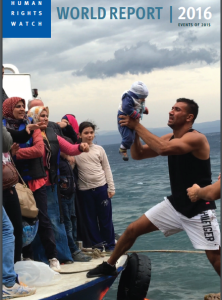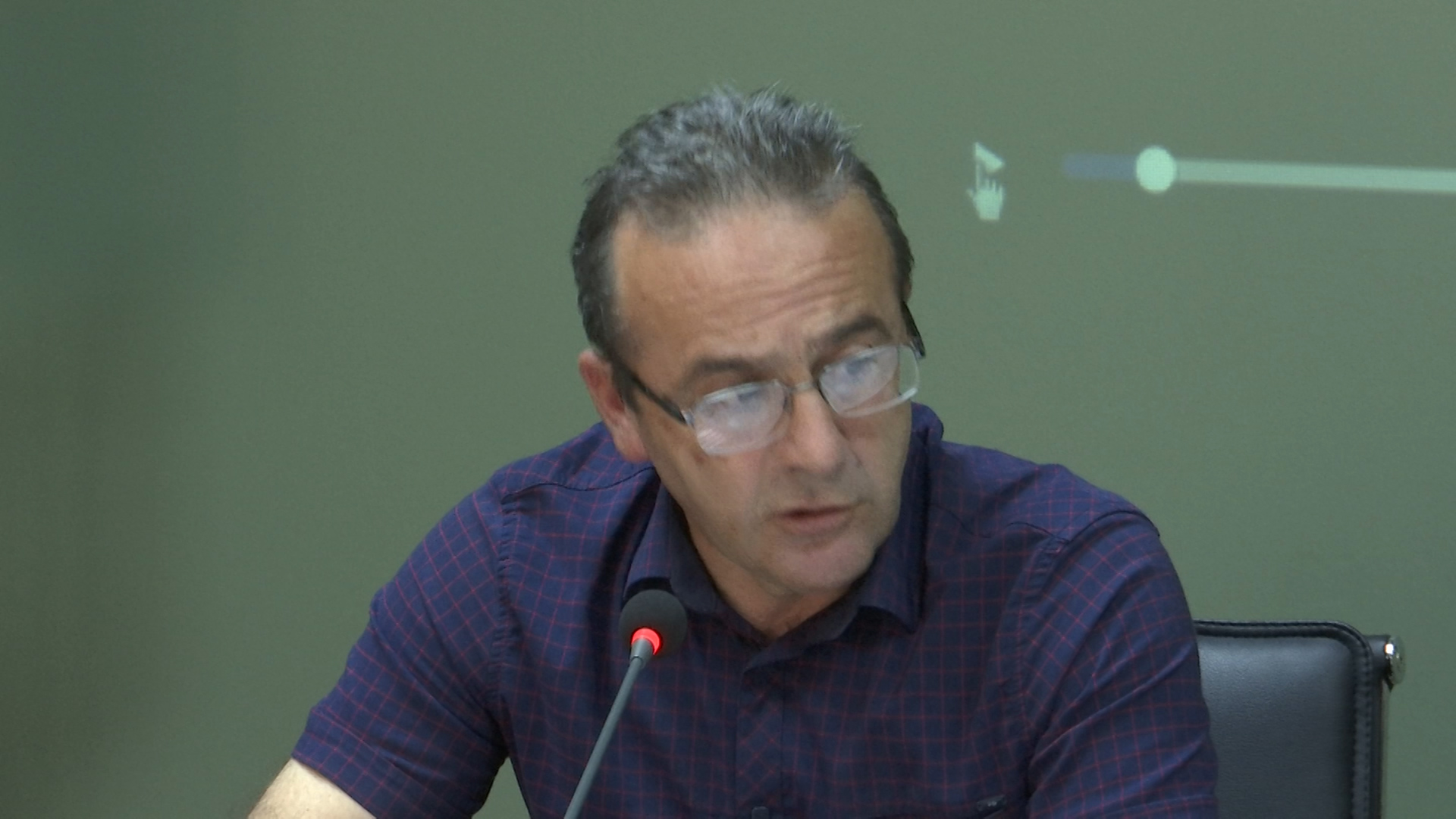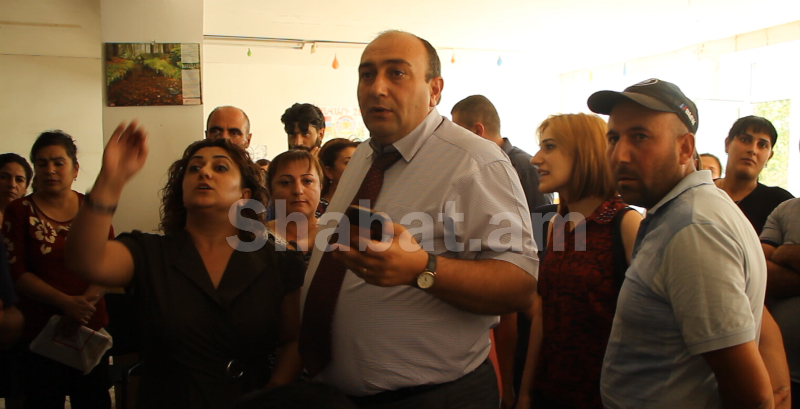HUMAN RIGHTS WATCH. WORLD REPORT 2016
January 27, 2016 Other, Report World Report 2016 is Human Rights Watch’s 26th annual review of human rights practices around the globe. It summarizes key human rights issues in more than 90 countries and territories worldwide, drawing on events from the end of 2014 through November 2015.
World Report 2016 is Human Rights Watch’s 26th annual review of human rights practices around the globe. It summarizes key human rights issues in more than 90 countries and territories worldwide, drawing on events from the end of 2014 through November 2015.
The book is divided into two main parts: an essay section, and country-specific chapters.
In the introductory essay, “Twin Threats: How the Politics of Fear and the Crush-ing of Civil Society Imperil Global Rights,” Human Rights Watch Executive Direc-tor Kenneth Roth details how fear drove two of the most important global developments of 2015. Fears of terror attacks and of the potential impact of refugee influx led to a visible scaling back of rights in Europe and other regions. Scapegoating Muslims and refugees, Roth argues, hurts and alienates popula-tions crucial to counterterrorism efforts. Efforts to weaken encryption of commu-nications and to intensify surveillance—the knee-jerk response of many governments to terror attacks—undermines privacy rights, can endanger critical infrastructure, and may distract from the focused investigative work that should be at the heart of counterterrorism efforts. In countries as diverse as China, Ethiopia, India, and Russia, another set of fears—in this case, fears that new dig-ital communications platforms will energize social and political movements— helped to drive a less recognized but disturbing and destructive global trend: the adoption by many countries of repressive new nongovernmental organization laws and policies targeting individuals and groups that try to hold governments to account, including social media users, civil society groups, and the funders who back them. Roth traces the ways in which human rights law can and should guide responses to these major global developments. “We abandon it,” he warns “at our peril.”
Most people never question the “boy” or “girl” designation they receive at birth. In the next essay, “Rights in Transition ” Neela Ghoshal and Kyle Knight examine the humiliating and violent treatment often endured by those who do. Across the world, transgender people are subject to discriminatory laws and policies that prevent them from accessing a range of rights and services, including health care, free expression, and privacy, and that in some cases ban their very exis-tence. Years of advocacy by intrepid transgender activists, combined with recent international pressure—including from the United Nations and Council of Eu-rope—has increased access to legal recognition for transgender people and eased the process by which they can achieve it. No new or special rights lie at the heart of such crucial efforts, argue Ghoshal and Knight, but rather a funda-mental “commitment to the core idea that the state or other actors will not de-cide for people who they are.”
Around the world, girls are forced into child marriages that are often ruinous for their personal growth and disastrous for their ability to realize basic human rights. Child marriage often means leaving school, domestic violence, a cycle of poverty, and an increased risk of serious health problems and death due to early childbearing. One in nine girls in the developing world marry before 15, and one in three by 18. The UN Sustainable Development Goals adopted in September 2015 aim to eliminate child marriage within 15 years, and many governments, donors, and civil society groups have rallied to the cause. But success, warns Nisha Varia, will not come easy and requires sustained political commitment to address social and cultural norms around girls’ sexuality; coordination across multiple sectors; learning about what works and for whom; and empowering girls themselves with information and access to services so that they can realize a potential that so many of their mothers—themselves child brides—have been denied.
Finally, in “Children Behind Bars,” Michael Bochenek looks at the global overuse of child detention. The UN Children’s Fund, UNICEF, estimates that more than one million children are behind bars worldwide. Some of these children are serv-ing excessively long sentences, others are held for skipping school, running away from home, and other acts that should not be crimes, and some have never been tried for their alleged crimes. Migrant children are often held in immigra-tion detention. Children with disabilities may be institutionalized. All of these practices violate international standards. A UN study soon underway will hope-fully result in increased attention to these abusive practices and greater compli-ance with international standards. But as Bochenek notes, governments do not need to wait for this study; they can and should act now to develop alternatives to detention and ensure that children who are locked up receive schooling, health services, and humane treatment.
The rest of the volume consists of individual country entries, each of which iden-tifies significant human rights issues, examines the freedom of local human rights defenders to conduct their work, and surveys the response of key interna-tional actors, such as the UN, the European Union, the United States, and vari-ous regional and international organizations and institutions.
The report reflects extensive investigative work that Human Rights Watch staff undertook in 2015, usually in close partnership with human rights activists in the country in question. It also reflects the work of our advocacy team, which moni-tors policy developments and strives to persuade governments and international institutions to curb abuses and promote human rights. Human Rights Watch publications, issued throughout the year, contain more detailed accounts of many of the issues addressed in the brief summaries in this volume. They can be found on the Human Rights Watch website, www.hrw.org.
As in past years, this report does not include a chapter on every country where Human Rights Watch works, nor does it discuss every issue of importance. The absence of a particular country or issue often simply reflects staffing limitations and should not be taken as commentary on the significance of the problem. There are many serious human rights violations that Human Rights Watch simply lacks the capacity to address.
The factors we considered in determining the focus of our work in 2015 (and hence the content of this volume) include the number of people affected and the severity of abuse, access to the country and the availability of information about it, the susceptibility of abusive forces to influence, and the importance of ad-dressing certain thematic concerns and of reinforcing the work of local rights or-ganizations.
H U M A N R I G H T S W A T C H. WORLD REPORT 2016
Related events
-
Զորակոչիկների և զինծառայողների իրավունքներին վերաբերող դասընթացները մարզերում կազմակերպելու համար անհրաժեշտ են կոնտակտային անձինք Լոռու, Շիրակի, Արարատի, Կոտայքի և Տավուշի մարզերում
September 10, 2018 Դասընթացները կազմակերպելու, մասնակիցներին ներգրավելու համար Կազմակերպությունը հավաքագրում է կոնտակտային անձանց Լոռու, Շիրակի, Արարատի, Կոտայքի և Տավուշի մարզերում:
Դասընթացները կազմակերպելու, մասնակիցներին ներգրավելու համար Կազմակերպությունը հավաքագրում է կոնտակտային անձանց Լոռու, Շիրակի, Արարատի, Կոտայքի և Տավուշի մարզերում:
Հետաքրքրվածության դեպքում անհրաժեշտ է ներկայացնել ինքնակենսագրական (CV) asadikyan@hcav.am էլ. փոստի հասցեով մինչև 2018թ.-ի սեպտեմբերի 18-ը: -
ՀՔԱ Վանաձորի գրասենյակը 2018 թ.-ի սեպտեմբեր-նոյեմբեր ամիսներին իրականացնելու է դասընթացներ ՀՀ-ում զինվորական հաշվառման ենթակա անձանց, զորակոչիկների, զինծառայողների եւ նրանց հարազատների համար
September 10, 2018
Դասընթացներին մասնակցելու համար կարող եք գրանցվել asadikyan@hcav.am էլեկտրոնային փոստին նամակ գրելու կամ /0322/ 4 22 68, 094 042268 հեռախոսահամարներով զանգահարելու միջոցով:
-
Լիա Միսակյանի մահվան մեջ մեղադրված բժիշկների նկատմամբ լրացուցիչ պատիժ նշանակելու գործով վճիռը չհրապարակվեց
September 7, 2018 Դատարանը հայտարարել է դատաքննությունը վերսկսելու մասին: Քանի որ անհրաժեշտ է պահանջագիր ներկայացնել Ոստիկանության ինֆորմացիոն կենտրոն՝ ամբաստանյալների՝ դատվածության վերաբերյալ տվյալները ճշտելու համար:
Դատարանը հայտարարել է դատաքննությունը վերսկսելու մասին: Քանի որ անհրաժեշտ է պահանջագիր ներկայացնել Ոստիկանության ինֆորմացիոն կենտրոն՝ ամբաստանյալների՝ դատվածության վերաբերյալ տվյալները ճշտելու համար: -
Վերաքննիչը հաստատեց. Երևանի քաղաքապետարանի դեմ կայացված դատական ակտը չկատարելու համար քրեական գործ կհարուցվի
September 7, 2018 ՀՀ Վերաքննիչ քրեական դատարանը 2018 թ. սեպտեմբերի 4-ին մերժեց ՀՀ Գլխավոր դատախազության դատախազ Ա. Շահբազյանի բողոքն ու անփոփոխ թողեց Երևան քաղաքի ընդհանուր իրավասության դատարանի որոշումը: Դրանով դատարանը պարտավորեցրել էր ՀՀ Հատուկ քննչական ծառայությանը քրեական գործ հարուցել Երևանի քաղաքապետարանի դեմ կայացված դատական ակտը չկատարած ԴԱՀԿ աշխատակիցների նկատմամբ:
ՀՀ Վերաքննիչ քրեական դատարանը 2018 թ. սեպտեմբերի 4-ին մերժեց ՀՀ Գլխավոր դատախազության դատախազ Ա. Շահբազյանի բողոքն ու անփոփոխ թողեց Երևան քաղաքի ընդհանուր իրավասության դատարանի որոշումը: Դրանով դատարանը պարտավորեցրել էր ՀՀ Հատուկ քննչական ծառայությանը քրեական գործ հարուցել Երևանի քաղաքապետարանի դեմ կայացված դատական ակտը չկատարած ԴԱՀԿ աշխատակիցների նկատմամբ: -
Շանթ Հարությունյանին անազատության մեջ պահելու անհրաժեշտություն չկա. Արթուր Սաքունց
September 7, 2018 «Իրավիճակը փոխվել է, Հայաստանում թավշյա հեղափոխություն է տեղի ունեցել: Նրան անազատության մեջ պահելու անհրաժեշտություն չկա: Նրա ազատազրկման խնդիրը քաղաքական իշխանության կողմից կարևոր է»,- ասաց Հելսինկյան քաղաքացիական ասամբլեայի նախագահ, իրավապաշտպան Արթուր Սաքունցը:
«Իրավիճակը փոխվել է, Հայաստանում թավշյա հեղափոխություն է տեղի ունեցել: Նրան անազատության մեջ պահելու անհրաժեշտություն չկա: Նրա ազատազրկման խնդիրը քաղաքական իշխանության կողմից կարևոր է»,- ասաց Հելսինկյան քաղաքացիական ասամբլեայի նախագահ, իրավապաշտպան Արթուր Սաքունցը: -
Խայտառակ զանգվածային բնույթի ընտրակաշառքն այլևս չի լինի
September 7, 2018 Սաքունցի խոսքով՝ պատժի խստացումը նախ և առաջ ունի կանխարգելիչ նշանակություն: «Մենք չենք հավակնում, որ ընտրությունների հետ կապված կաշառք հասկացությունը կվերանա, բայց խստացումն անպայման կունենա կանխարգելիչ նշանակություն: Եվ այն խայտառակ զանգվածային բնույթի ընտրակաշառքը, որն արձանագրվում էր նախկին ընտրությունների ժամանակ, այլևս չի լինի»,- հավելեց նա:
Սաքունցի խոսքով՝ պատժի խստացումը նախ և առաջ ունի կանխարգելիչ նշանակություն: «Մենք չենք հավակնում, որ ընտրությունների հետ կապված կաշառք հասկացությունը կվերանա, բայց խստացումն անպայման կունենա կանխարգելիչ նշանակություն: Եվ այն խայտառակ զանգվածային բնույթի ընտրակաշառքը, որն արձանագրվում էր նախկին ընտրությունների ժամանակ, այլևս չի լինի»,- հավելեց նա: -
Դատարանը վաղը կվճռի՝ Լիա Միսակյանի մահվան մեջ մեղադրվող բժիշկների նկատմամբ լրացուցիչ պատիժ կնշանակվի, թե՝ ոչ
September 6, 2018 Տուժողի իրավահաջորդի ներկայացուցիչ Տ․ Սիրադեղյանը օգտվեց ռեպլիկի իր իրավունքից և նշեց, որ պաշտպանական կողմի ներկայացրած փաստաթղթերը՝ սեմինարների, դասընթացների մասնակցության վերաբերյալ, չեն նվազեցնում ամբաստանյալների արարքի հանրային վտանգավորության աստիճանը, ուստի՝ բավարար հիմքեր կան լրացուցիչ պատիժ նշանակելու համար:
Տուժողի իրավահաջորդի ներկայացուցիչ Տ․ Սիրադեղյանը օգտվեց ռեպլիկի իր իրավունքից և նշեց, որ պաշտպանական կողմի ներկայացրած փաստաթղթերը՝ սեմինարների, դասընթացների մասնակցության վերաբերյալ, չեն նվազեցնում ամբաստանյալների արարքի հանրային վտանգավորության աստիճանը, ուստի՝ բավարար հիմքեր կան լրացուցիչ պատիժ նշանակելու համար: -
Ելփին գյուղի ուսուցիչները պնդում են, որ իրենց դեմ բողոքի ակցիաները հրահրել է դպրոցի տնօրենը, և ահազանգում են չարաշահումների մասին
September 6, 2018 Վայոց Ձորի մարզի Ելփին գյուղի երեք ուսուցիչներ դիմել են ՀՔԱ Վանաձորի գրասենյակ և հայտնել, որ նրանց նկատմամբ հետապնդումներ ու ճնշումներ են սկսվել:
Վայոց Ձորի մարզի Ելփին գյուղի երեք ուսուցիչներ դիմել են ՀՔԱ Վանաձորի գրասենյակ և հայտնել, որ նրանց նկատմամբ հետապնդումներ ու ճնշումներ են սկսվել: -
Լիա Միսակյանի մահվան մեջ մեղադրված բժշկի պաշտպաններն այսօր դատարանում հանդես կգան ամփոփիչ ճառով
September 6, 2018 Տեղեկացնում ենք, որ այսօր՝ 2018 թ. սեպտեմբերի 6-ին՝ ժամը 16:30-ին, Երևան քաղաքի ընդհանուր իրավասության դատարանի Շենգավիթի նստավայրում Արաբկիր ԲԿ-ում 2013 թ. հունվարին մահացած 2 տարեկան, 3 ամսական Լիա Միսակյանի մահվան մեջ մեղադրված բժիշկ Զ. Այվազյանի պաշտպանները հանդես կգան ամփոփիչ ճառով:
Տեղեկացնում ենք, որ այսօր՝ 2018 թ. սեպտեմբերի 6-ին՝ ժամը 16:30-ին, Երևան քաղաքի ընդհանուր իրավասության դատարանի Շենգավիթի նստավայրում Արաբկիր ԲԿ-ում 2013 թ. հունվարին մահացած 2 տարեկան, 3 ամսական Լիա Միսակյանի մահվան մեջ մեղադրված բժիշկ Զ. Այվազյանի պաշտպանները հանդես կգան ամփոփիչ ճառով: -
Մահացած ծննդկանի մայրը կասկածում է, որ բժիշկները դստեր մահվան փաստն իրենցից ժամեր շարունակ թաքցրել են
September 6, 2018 Ի հաստատումն իր այդ պնդման՝ ասաց, որ երբ դեռ իրենց չէին հայտնել մահվան մասին, ընդունարանի բուժքույրը իրեն ու Հռիփսիմեի սկեսրոջը կանչել է սենյակ, չափել ճնշումը ու ինչ-որ դեղ տվել, ապա հյուրասիրել իրենց իսկ բերած շոկոլադից՝ ասելով. «Կերեք, որ դիմանաք»:
Ի հաստատումն իր այդ պնդման՝ ասաց, որ երբ դեռ իրենց չէին հայտնել մահվան մասին, ընդունարանի բուժքույրը իրեն ու Հռիփսիմեի սկեսրոջը կանչել է սենյակ, չափել ճնշումը ու ինչ-որ դեղ տվել, ապա հյուրասիրել իրենց իսկ բերած շոկոլադից՝ ասելով. «Կերեք, որ դիմանաք»: -
Մենք չենք սպասելու, գործելու ենք, սա միայն իշխանության անելիքը չէ. Սաքունց
September 5, 2018 «Մենք չենք սպասելու, գործելու ենք, սա միայն իշխանության անելիքը չէ, հասարակությունը, քաղհասարակությունը, փորձագիտական շրջանակները, հակված լինելով այդ փոփոխությունների, պետք է աշխատեն այդ ուղղությամբ»,-եզրափակեց Արթուր Սաքունցը, հավելելով որ իշխանությունը միայնակ չի կարող կատարել այդ փոփոխությունները օբյեկտիվ պատճառներով, որոնցից առաջինը խորհրդարանաում ձայների 7 տոկոսին տիրապետելն է:
«Մենք չենք սպասելու, գործելու ենք, սա միայն իշխանության անելիքը չէ, հասարակությունը, քաղհասարակությունը, փորձագիտական շրջանակները, հակված լինելով այդ փոփոխությունների, պետք է աշխատեն այդ ուղղությամբ»,-եզրափակեց Արթուր Սաքունցը, հավելելով որ իշխանությունը միայնակ չի կարող կատարել այդ փոփոխությունները օբյեկտիվ պատճառներով, որոնցից առաջինը խորհրդարանաում ձայների 7 տոկոսին տիրապետելն է:ՀՔԱ Վանաձորի գրասենյակը հայտարարում է մրցույթ գրասենյակի Երևանի ներկայացուցչությունում իրավաբանի թափուր հաստիքի համար
September 5, 2018 Դիմել՝ ուղարկելով հայերեն լեզվով ինքնակենսագրական (PDF ֆորմատով) ssukiasyan@hcav.am էլ. փոստի հասցեին՝ վերնագրի դաշտում նշելով «Իրավաբանի թափուր հաստիք»:
Դիմել՝ ուղարկելով հայերեն լեզվով ինքնակենսագրական (PDF ֆորմատով) ssukiasyan@hcav.am էլ. փոստի հասցեին՝ վերնագրի դաշտում նշելով «Իրավաբանի թափուր հաստիք»:Դիմելու վերջնաժամկետ՝ 2018 թ.-ի սեպտեմբերի 15:
